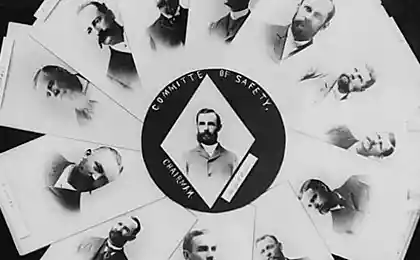550
Why do we take offense at trifles, but forgive great wrongs
To avoid boli
A team of scientists from the University of California, Harvard and the University of Virginia conducted a series of experiments showing that people do not know how to predict how they will affect the pain - at least in the long term. We tend to think that a painful injury or insult inflicted on our loved ones, over time will become more painful.
People were asked how they think, they will feel immediately after the adverse event and one week thereafter. Interviewees believed that at the time of the unpleasant events of their much someone does not like or are offended by this man, in a week did not change - bullying will not.
Subjects were asked to write an autobiographical story and then read a story the other party's research and based on it, to assess the person wrote. Participants were then to meet with his "partner" and discuss what they read, some - once, twice - twice. Here are just a "partner" that was a dummy.
When the participants met with their "partners", they insulted them. Then the subjects were asked what they think about the person, and the answers were positive, as they believed that in a week will be thinking about it as unflattering.
Five minutes later, the participants were asked the same question. Those who have never had to meet a "partner," continued uncomplimentary about him speak. Those who would see a "partner" again, suddenly decided to forgive him and said that he is not so bad.
Why should we allow a person familiar insult us, but from a stranger do not tolerate? According to the authors, we just can not afford it.
If the pain is insignificant, we do not mind to let her quietly smolder inside us, but if the pain is too strong - find a way to get rid of it. We respond as well when we get physical injury: gunshot wound may be less painful than a bad back.
When something becomes too large or too painful problem that we could put up with it, we are taking action to relieve pain - both physical and psychological. If something is "slightly" hurt, we prefer to live with a very long time.
via factroom.ru

A team of scientists from the University of California, Harvard and the University of Virginia conducted a series of experiments showing that people do not know how to predict how they will affect the pain - at least in the long term. We tend to think that a painful injury or insult inflicted on our loved ones, over time will become more painful.
People were asked how they think, they will feel immediately after the adverse event and one week thereafter. Interviewees believed that at the time of the unpleasant events of their much someone does not like or are offended by this man, in a week did not change - bullying will not.
Subjects were asked to write an autobiographical story and then read a story the other party's research and based on it, to assess the person wrote. Participants were then to meet with his "partner" and discuss what they read, some - once, twice - twice. Here are just a "partner" that was a dummy.
When the participants met with their "partners", they insulted them. Then the subjects were asked what they think about the person, and the answers were positive, as they believed that in a week will be thinking about it as unflattering.
Five minutes later, the participants were asked the same question. Those who have never had to meet a "partner," continued uncomplimentary about him speak. Those who would see a "partner" again, suddenly decided to forgive him and said that he is not so bad.
Why should we allow a person familiar insult us, but from a stranger do not tolerate? According to the authors, we just can not afford it.
If the pain is insignificant, we do not mind to let her quietly smolder inside us, but if the pain is too strong - find a way to get rid of it. We respond as well when we get physical injury: gunshot wound may be less painful than a bad back.
When something becomes too large or too painful problem that we could put up with it, we are taking action to relieve pain - both physical and psychological. If something is "slightly" hurt, we prefer to live with a very long time.
via factroom.ru
Best practice for a happy life, which almost nobody uses
Student from Canada can "leave" his body when he wants























